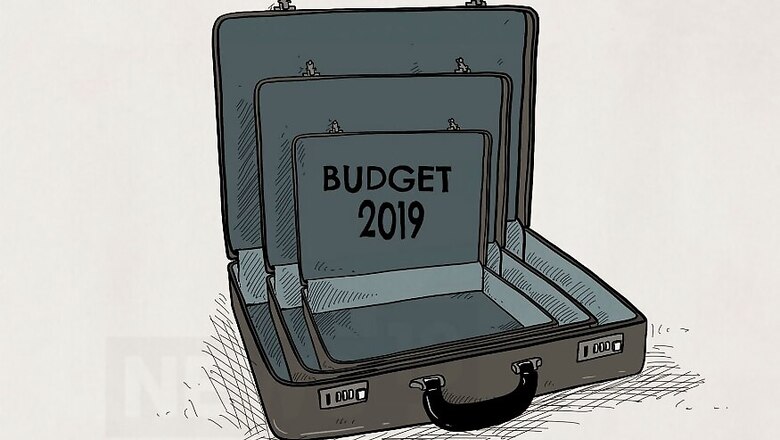
views
New Delhi: The Retailers Association of India (RAI) has submitted its key recommendations to the finance ministry for the upcoming Budget 2019-2020.
The intention is to call the government’s attention to key areas, with the potential to provide the necessary boost to unleash growth in the retail sector and increase its contribution to the GDP of the country.
RAI has recommended that the GST on branded/unbranded food grain and cereals should be treated on par and declared tax free.
The government has made items such as cereals and food grain GST-free and imposed a 5 percent levy on branded food grain and cereals.
RAI has recommended an early introduction of the Tax Refund for Tourists (TRT) scheme in view of the significant prospective benefits to our members and the broader positive impact on the nation’s economy.
“Government should consider prioritising the notification of the Tax Refund for Tourists scheme, followed by an early roll-out, keeping in mind that this scheme would be enthusiastically received by all stakeholders, foreign tourists and Indian businesses alike,” RAI said in its recommendation letter.
"Shopping is an important part of tourism, which contributes heavily to tourism related earnings. Tourists should be encouraged to spend more and buy from Indian retail shops," RAI said.
Among other recommendations, RAI has suggested that the threshold for the 5 percent slab on the GST on apparels and clothing should be increased from Rs 1,000 per piece to Rs 2,000.
Currently, apparels or clothing are subject to 5 percent GST of the taxable value of the goods does not exceed Rs 1,000 per piece. All types of apparel and clothing of sale value exceeding Rs 1,000 per piece is subject to 12 percent GST.
RAI wants government to allow the refund of accumulated input tax credit accrued on account of Input Services, Capital Goods, where input tax is higher (18 percent) than the output GST.
Kumar Rajagopalan, CEO – Retailers Association of India said, “We feel the first priority for it should be to do everything it can to boost consumption by putting more money in the hands of consumers. It is the only way to foster positive sentiment in the market,”
He further pointed out that another way to boost consumption was to give foreign tourists a refund of GST on shopping—a common practice in all developed countries in the world. It will not only boost tourism but also consumption.
“When consumption grows, retail grows with it. Our second key recommendation is in the area of ease of doing business, which includes forming a National Retail Trade Policy, addressing concerns with regards to sections 132A of the Finance Bill and reducing the corporate tax burden, among other things.”
The third ask is to make accepting digital payments cheaper than cash for retailers. Current barriers to large-scale adoption of digital are the costs related to POS machines and high MDR rates.
“Easing these could give a huge fillip to the Digital India movement and to the proliferation of modern retail practices in the country. If the government addresses the above in the upcoming budget, it will help not just retailers, but also the end-consumer,” he said.




















Comments
0 comment